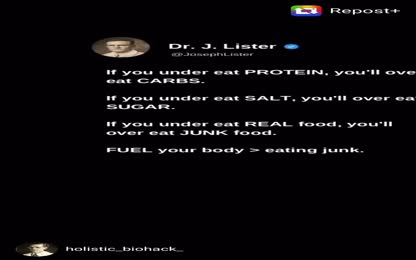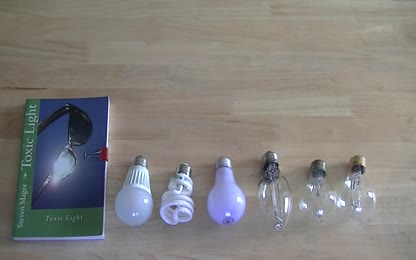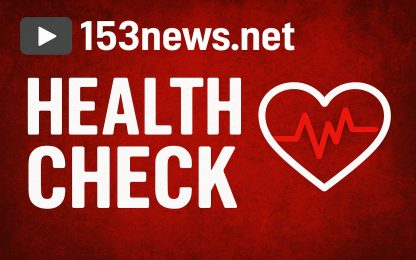Advertisement
Why Medical Screenings and Health Check-ups Do More Harm Than Good
8 Jul 2021. Coleman’s 4th Law of Medicine: Why Medical Screenings and Health Check-ups Do More Harm Than Good
International bestselling author and retired medical doctor, Dr Vernon Coleman, explains why medical screenings and health check-ups benefit doctors more than patients.
For more unbiased information about other important matters, please visit https://www.vernoncoleman.org
- Category: Big Pharma /FDA Approved /CDC,Expert / Professional,Experience,Health Concerns
- Duration: 09:20
- Date: 2021-07-09 02:48:40
- Tags: no-tag
1 Comments
Video Transcript:
My fourth law of medicine is that screening examinations and checkups are usually more profitable for doctors than for patients. I've been a stern critic of screening examinations and checkups for many decades and have in the distant past pointed out that well-known and extremely profitable forms of testing, such as a cervical smear, the mammogram, and the prostate-specific antigen test for prostate cancer may, over the years, have done considerably more harm than good. Naturally, my criticisms have been met with a barrage of angry and very defensive comments from doctors who earn a living, providing screening tests and from companies which make money out of producing screening equipment. Today, the industry promoting health checks continues to promote and profit from them, though I'm pleased to say that a growing number of doctors now share my fear that such tests may, in the long run, do far more harm than good. As long ago as 2004, a study by experts at Stanford University, Medical School in the United States, suggested that the PCA test, a PSA test, story, should not be relied upon to produce accurate results. And in recent years, more and more doctors have come to accept that routine mammograms, in which the breast tissue is x-rayed, are far too dangerous and should be avoided routinely. It was in 1988 that I first warned about the danger of mammograms, and my criticism was, of course, greeted with owls of outrage from the medical establishment. Back then I wrote, there are, of course, risks in having regular x-ray examinations. No one knows yet exactly what those risks are, will probably find out in another 10 or 20 years' time. And then in 2006, what's that? 18 years' time. Doctors finally issued a warning about mammograms coming to precisely the conclusion I'd warned about 18 years earlier. Mammograms may help prevent breast cancer, but they may also cause breast cancer. Just how many women have died because of the radiation they've received through mammography isn't known, but it seems that the risks for younger women, women in their 30s, for example, are higher than the risks for older women. Radiation induced cancer typically takes up to 20 years to develop, so for a woman in her 80s the risks of mammography are probably somewhere between slight and negligible. According to some estimates, there are every 10,000 women who have mammograms from the age of 40 onwards, between 2 and 4 will develop radiation induced breast cancer, one of them will die as a result of this. The precise figures are unknown and depend upon the quality and amount of radiation, the school of the technician and other factors, probably including the general health of the woman concerned. Patients are frequently invited to their doctor's surgery for a screening test or a health check. Don't make the mistake of thinking that your doctor suddenly cares for you a great deal. The Britain family doctors have paid huge bonuses if they perform routine health checks on their patients. The principle of screening is a simple one. The patient trots along to the doctor and the doctor, for a fee, thus tests which are designed to spot early signs of disease. The tests which are offered are done because the medical establishment has managed to convince the bureaucrats that the screenings worth paying for. Doctors are enthusiastic about screening because I'm afraid it's enormously profitable. And they're very lukewarm about encouraging their patients to follow healthier lifestyles because there's no money in it. For decades now just about every attempt to show that medical screening programmes save lives as proved that there are waste of time, energy and money, indeed surveys have proved that because of the risk of false positives, medical screening programmes do farm or harm them good. Medical screening programmes do go back a long way. The first recorded screening took place at a public brothel in Avignon in 1347 when a local abyss and a surgeon examined all the working women every Saturday to see whether or not they were fit to carry on serving the local population. And in 1917, large corporations in the United States thought it might be a good idea to have their employees examined regularly. When half of four million American men called up for military service during the First World War proved to be unfit for military service, insurance companies started screening the general population. Since then the medical screening business has grown virtually unchecked and those promoting screening or health checks merely ignore the inconvenient fact that since the 1970s there's been ample evidence to show that medical screening programmes aren't just a waste of time and money but can be a serious health hazard. Back in 1979 the World Health Organization published a report which showed that people who were subjected to regular medical screenings needed to go to hospital more often but were not as healthy as people who did not undergo regular medical screenings. The conclusion was that health screenings expensive and ineffective. In the same year the results of a Canadian task force report on periodic health examination came to the conclusion that annual medical checkups should be abandoned since they were both inefficient and potentially harmful. Health checks are harmful for many reasons. Most when people are taught to put their faith in medical checkups they tend to abandon responsibility for their own health and enjoy a false sense of security. Patients forget that a medical checkup is no more a sign of long-term health than an encouraging bank statement is a sign of permanent financial security. A patient who has given a clean bill of health is likely to ignore strange symptoms which develop a week or two later and there's a danger that he or she may feel that it's unnecessary to eat wisely or to take regular exercise. Second, screening programmes may frighten people. They can result in cancer phobias, neuroses and depression and they can result in so much stress that the immune system's damaged leading to a greater susceptibility to disease. Third, the procedures involving screening programmes may do physical harm. There are for example some doctors who perform coronary angiographs as part of their checkup procedures. As many as two patients per hundred may die during this procedure. Fourth, when a screening examination results in a false positive the patient may be given a treatment which may damage his or her health. A major Swedish report on breast screening showed that out of 600,000 women screened there had been 100,000 false positives. This means that 100,000 healthy women were told that they had breast cancer when they didn't have anything wrong with them. They were terrified and treated unnecessarily. Fifth, screening is expensive, wasting money that could be used on other things. Six, it's a proven fact that screening doesn't work, it's dangerous and does more harm than good. Every independent survey I've found has concluded that screening whether general or specific is costly and useless. The reality is that the only people who benefit from screening programmes are doctors and other parts of the health industry. Screening programmes remember are extremely profitable. The problems and hazards seem boundless. For example if you have a one in three chance of a false positive test if you have a full body CT scan which you do, there's also a one in twenty chance that the scan will miss signs of disease and give you a false sense of complacency and encourage you to ignore important physical signs. Those are crucial. I've been screaming about the dangers of screening programmes for 30 years, 40 years, 50 years and was delighted when in November 2009 the American Cancer Society finally accepted that screening for some types of cancer is inefficient in accurate and alarmist and can do damage by detecting cancers that either don't exist or wouldn't kill if they did. Naturally however such programmes are still promoted within the National Health Service in the UK where staff favour screening programmes because it's easy to measure the results. They can say we screen 10,000 people and found 10 people with possible cancer, we have therefore saved 10 lives in medical and statistical terms such claims are nonsensical but in political terms they're invaluable. Offering sensible advice is much cheaper and safer but the results can't be measured and it's difficult for doctors or health authorities to claim the credit for saving lives. So much for health screening. Thank you for watching an old man in a chair.










 Donate
Donate







